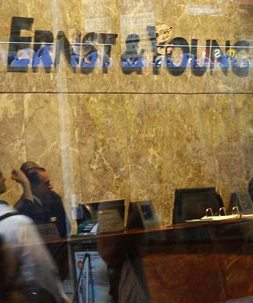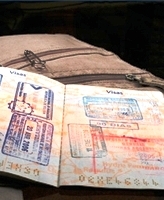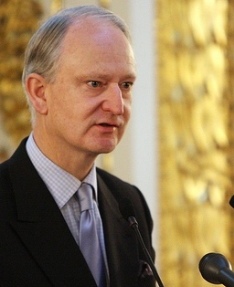Archive for December 20th, 2010
Let’s learn from each other
(CNS): Premier McKeeva Bush is looking forward to learning from a collective pooling of ideas, he said at last week’s first ever Northern Caribbean Conference on Economic Cooperation, and maintained that countries such as the Cayman Islands, Jamaica, Puerto Rico, the Dominican Republic, Haiti and the Bahamas all had a variety of common issues that might be solved from improved relations and co-operation. The premier said that immigration and labour, trade, education, national security and tourism had been identified as the core areas for discussion at the conference. He confirmed that Cayman would particularly benefit from learning how neighbouring countries approached such issues, in light of the current downturn in the economy.
“The picture is not quite as rosy as it used to be. Fallout from the 2008 global recession continues to have a wide-spread effect on the Cayman Island’s economy, so whereas traditionally the pace of our growth was steady and positive, within the last two years the country has undergone a sharpreversal in this growth trajectory,” he told the audience gathered at the Ritz-Carlton.
Bush spoke about how links with Northern Caribbean countries could foster better relations when it came to the training of their people within the tourism industry. While acknowledging the fact that the University of the West Indies had Bachelors and Masters Programme in both tourism and hospitality management available in both the Bahamas and Jamaica, he commented: “Tourism is a strong sector in Cayman, in the Dominican Republic, and in Puerto Rico as well, but how many College of Hotel Management can say they have interned in one of the myriad of hotels in any of our destinations? If a central placement committee was set up to cohesively look into this, I am sure something could be worked out for these students.”
He also called for research assistance for graduate students, as well as the establishment of education exchange programmes in general. In particular Bush highlighted Cuba’s success with the training of their doctors. "Why can’t we learn from them and apply it to other disciplines?” he questioned.
Bush called for Northern Caribbean countries to join forces and to present a united front when it came to external influences, which, he perceived, “threaten the viability and sustainability of our tourism industries.”
Bush was referring to the UK’s recently introduced Air Passenger Duty which places the Caribbean in one of the highest bands, where the duty payable has recently risen from £50 to £75 per person.
“In these difficult economic times, requiring a family of four to pay £300 in taxes just for the privilege of flying to the Caribbean will make the annual family holiday unaffordable for many. It will take great cooperation and a strong regional voice to make our position clear in order to fight such unfair initiatives now and in the future,” he confirmed.
Turning to immigration, Bush said that his newly launched Economic Plan addressed aspects of immigration reform, including enhancements for options to residency. It also incorporated visa requirements designed to create a better business climate for international and regional travellers. Further to this, Bush said he had announced that visa exemptions would be put in place for Jamaican Nationals who hold validated US, UK or Canadian visas, to which he received a round of applause from the audience. The news that he was also introducing a new 1-5 day business visa for business travelers was also well received.

Auditors face prosecution
 (WSJ): New York prosecutors are poised to file civil fraud charges against Ernst & Young for its alleged role in the collapse of Lehman Brothers, saying the Big Four accounting firm stood by while the investment bank misled investors about its financial health, people familiar with the matter said. State Attorney General Andrew Cuomo is close to filing the case, which would mark the first time a major accounting firm was targeted for its role in the financial crisis. The suit stems from transactions Lehman allegedly carried out to make its risk appear lower than it actually was.
(WSJ): New York prosecutors are poised to file civil fraud charges against Ernst & Young for its alleged role in the collapse of Lehman Brothers, saying the Big Four accounting firm stood by while the investment bank misled investors about its financial health, people familiar with the matter said. State Attorney General Andrew Cuomo is close to filing the case, which would mark the first time a major accounting firm was targeted for its role in the financial crisis. The suit stems from transactions Lehman allegedly carried out to make its risk appear lower than it actually was.

Bush confirms visa exemptions for Jamaicans
 (CNS): From the New Year Jamaicans travelling to the Cayman Islands who have validated US, UK or Canadian visas will no longer require a separate visa to enter the country. The premier told delegates at the Northern Caribbean Conference on Economic Co-operation on Friday that the changeswould be implemented in January. McKeeva Bush first announced his intention to scrap the requirement, introduced in November 2005, in the Legislative Assembly earlier this year. He said the visa waiver was one of a number of immigration reforms in his economic plan designed to create a better business climate for international and regional travellers. “The new 1-5 day business visa will be introduced for business travellers visiting for legitimate business purposes,” Bush told more than 150 delegates from across the region.
(CNS): From the New Year Jamaicans travelling to the Cayman Islands who have validated US, UK or Canadian visas will no longer require a separate visa to enter the country. The premier told delegates at the Northern Caribbean Conference on Economic Co-operation on Friday that the changeswould be implemented in January. McKeeva Bush first announced his intention to scrap the requirement, introduced in November 2005, in the Legislative Assembly earlier this year. He said the visa waiver was one of a number of immigration reforms in his economic plan designed to create a better business climate for international and regional travellers. “The new 1-5 day business visa will be introduced for business travellers visiting for legitimate business purposes,” Bush told more than 150 delegates from across the region.
“In these instances, the business visa will replace the need for these persons obtaining temporary work permits for short trips to attend meetings or conferences,” he said.
The conference brought together heads of government and leaders in various fields, from education to tourism, to focus on issues relating to the Bahamas, the Cayman Island, Cuba, the Dominican Republic, Haiti, Jamaica and Puerto Rico, and find possible ways to co-operate to improve the common economic situation.
Talking about the purpose of the conference, Bush added, “At this juncture, the Cayman Islands government is open to considering any suggestions that can help us achieve positive economic growth so we can build a strong foundation for existing and future generations.”
During a press conference Bush said that in order for Cayman’s economic fortunes to improve, it needed more people. He said the changes to immigration would attract investors to come and live here. “We are trying to build a stronger country and we need more people,” he said. “In recent years these islands have not been so welcoming and we lost some 6,000 permit holders but double that in people. So we are trying to build back the population.”
Bush stated that this would not happen over night but it would be a gradual process.
Jamaica’s Prime Minister Bruce Golding also spoke about the need to ease the migration of skilled individuals and said that by pooling talent the region would compete more effectively on the international stage. “We have spent too much time struggling to compete with each other instead of pooling our energies and determining together how we can compete with the rest of the world,” he said. “We have to make ourselves not just as good as the best but slightly better in order to attract investors.”
The former Jamaican leader, PJ Patterson, said the Caribbean states had adopted some of the worst of the colonial practices. “We have become, or are becoming, draconian in our trade and immigration practices,” he said, adding that it was causing the region to be isolated, and while sporadic attempts have been made to break the isolationist tendency, none had been fully exploited. However, the attempts demonstrated that was an underlying desire to increase interaction and cooperation, he said.

UK extends direct rule over Turks & Caicos
 (CNS): According to the UK there are is still a “serious and deteriorating problem” in the Turks and Caicos Islands and as a result the British government has set out a list of milestones the territory must achieve before it will allow democratic elections to take place and before it will lift direct rule. The overseas territories minister Henry Bellingham told the UK parliament that it is clear that the fiscal picture in TCI represents an “unacceptable collapse in the fiscal governance” of the territory and there would be no election in 2011. The UK has extended the Order in Council continuing in force the Turks and Caicos Islands Constitution (Interim Amendment) Order 2009 beyond 14 August next year.
(CNS): According to the UK there are is still a “serious and deteriorating problem” in the Turks and Caicos Islands and as a result the British government has set out a list of milestones the territory must achieve before it will allow democratic elections to take place and before it will lift direct rule. The overseas territories minister Henry Bellingham told the UK parliament that it is clear that the fiscal picture in TCI represents an “unacceptable collapse in the fiscal governance” of the territory and there would be no election in 2011. The UK has extended the Order in Council continuing in force the Turks and Caicos Islands Constitution (Interim Amendment) Order 2009 beyond 14 August next year.
He said the Department for International Development has provided a Chief Financial Officer to the Turks and Caicos Islands government to meet the urgent task of addressing its structural deficit and putting it on a course towards a sustainable fiscal surplus in the financial year 2012/13.
The minister revealed a list of milestones that the FCO says must be met before it can consider setting a date for elections.
Bellingham said the recommendations of the Commission of Inquiry, which underpins good governance and sound public financial management must be implemented in a new Turks and Caicos Islands Constitution Order along with the introduction of a number of new ordinances, including those making provision for the electoral process and regulation of political parties; integrity and accountability in public life and the establishment of robust and transparent public financial management processes to provide a stable economic environment.
The UK also wants to see a strengthening of the Turks and Caicos Islands Government’s capacity to manage its public finances and the implementation of budget measures to put the Turks and Caicos Islands Government on track to achieve a fiscal surplus in the financial year ending March 2013.
The implimentation of a transparent and fair process for acquisition of ‘belongership’ is also a condition as well as the need for progress with the civil and criminal processes recommended by the Commission of Inquiry, and implementation of measures to enable these to continue unimpeded. The milestone list also includes the implementation of a new Crown Land policy and reform of the Public Service.
“Reaching these milestones will require time, care and hard work by the UK and the Turks and Caicos Islands Government, and particularly by the Turks and Caicos Islands Public Sector,” Bellingham said. “There will be public consultation on a number of issues across Turks and Caicos Islands and, we hope, the engagement of the Islands’ political parties. The milestones we have identified do not include everything that will have to be done before elections take place. In general the UK Government will have to be satisfied that the necessary reforms have been put in place to address the issues raised by the Commission of Inquiry, to prevent such maladministration being repeated, and to engender the confidence of the international community.”
The milestones were described as the minimum preconditions before the Turks and Caicos Islands can return to elected government.
“The UK Government has helped protect the Turks and Caicos Islands Government finances from complete collapse and intends to provide continuing financial support,” Bellingham said. “However it is important that the Islands make good use of this period of UK financial support to address the deep crisis in public finance and to achieve a fiscal surplus.”
He added that the UK hoped the milestones will also help any future Turks and Caicos Islands Government to continue “to embed good governance with full respect for the rule of law and human rights, and zero tolerance of corruption.”